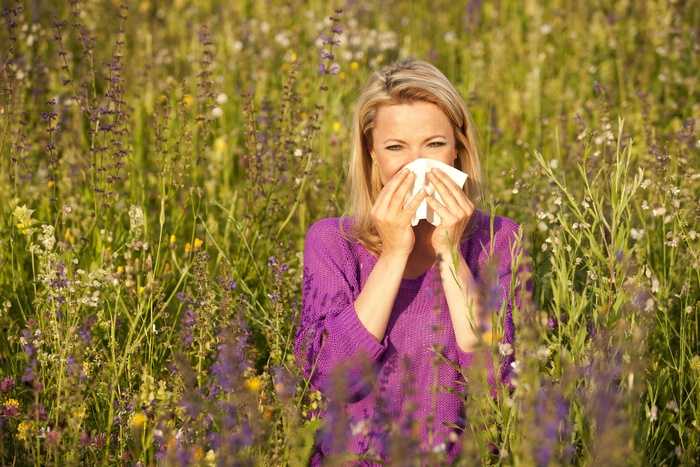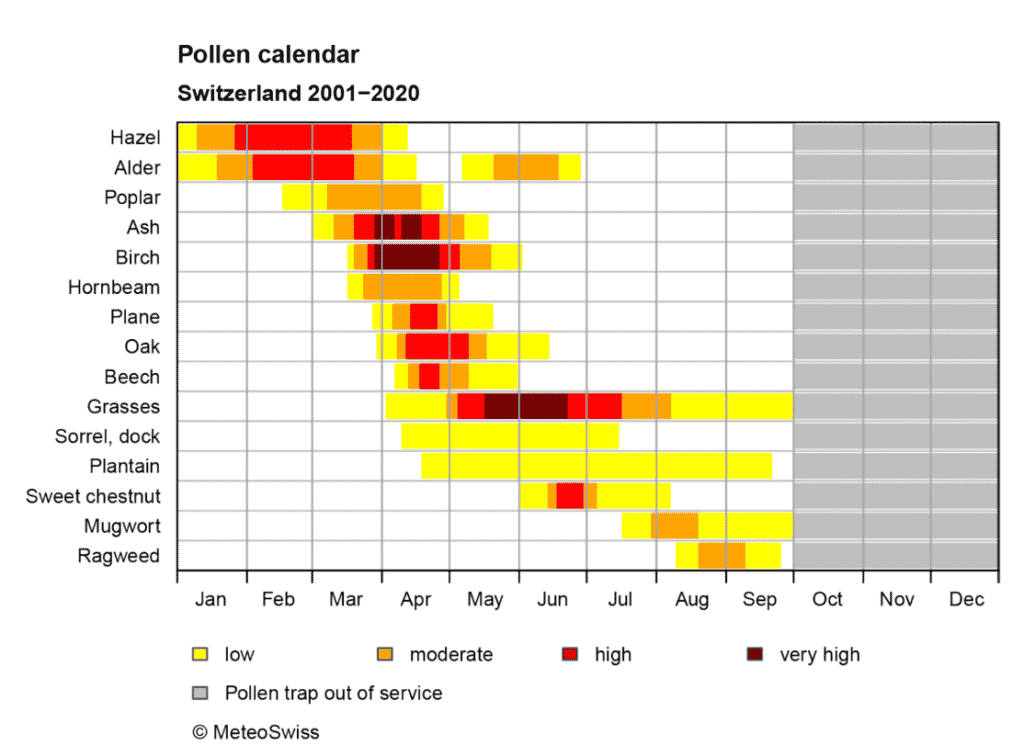Allergy is a disease of the immune system. This enables our body to defend itself against external attacks (bacteria, viruses, parasites…). The immune defence is composed of 2 phases: the recognition of the attacker (specific response), and then the use of different mechanisms to neutralise the attacker (inflammation). The specific…
ALLERGIC RHINITIS: THE MOST COMMON DISORDER AND THE MOST NEGLECTED Hay fever is the typical expression of allergy in the nose area. He begins with sneezing fits, tingling in the nose, runny nose, and finally leads one stuffy nose. In addition, patients often complain of watery eyes and difficulty breathing.…
The intensity of the pollen loads and the beginning and duration of the pollen season change from year to year according to the weather conditions before and during the pollen season. The rising temperatures of climate change are resulting in an earlier pollen season, and, in the case of certain…
Cat allergy is one of the most common allergies. There are eight known car allergies. The symptoms include coughing, wheezing, chest tightening, itching, nasal congestion, rash, watering eyes, sneezing, and chapped lips. In some cases, reactions can be more severe and life-threatening. They include rhinitis and severe forms of asthma.…
To combat allergic diseases, we have treatment options as well as preventive measures. Sensitisation and allergy are active processes that change throughout life: the patient may develop new allergies or reduce their reactivity to allergens to which they are already sensitised. Thus, both prevention and treatment are essential in allergic…
For several decades now, the incidence of allergy diseases and especially asthma diseases with their considerable effects on health has been steadily increasing among children. According to recent comparative studies on the frequency of allergies in former East Germany and West Germany, this increase is related to our Western lifestyle.
WHAT IS CAT ASTHMA? Asthma is a relatively common chronic inflammatory disease of the bronchial tubes in cats. It is a hypersensitivity reaction following sensitisation by an aeroallergen (allergen present in the air). The bronchi undergo variable pathological changes after repeated exposure to the same allergen: airway inflammation (white blood…
FUNGAL ALLERGY: CAUSES AND FREQUENCY? For a century, fungal spores have been considered a possible cause of respiratory allergies. From the great kingdom of fungi, about 100 species of fungi have been associated with allergic respiratory diseases. In principle, however, only two classes of fungi are relevant for respiratory allergies,…
The contact of the allergen with the immune system allows allergy antibodies (IgE) specific to that allergen to be produced in a person genetically predisposed to (atopic) allergies. The person is then sensitised to that allergen. After the allergen is recognised by the molecule of IgE, allergic inflammation can be…










